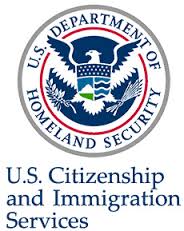Immigration News & Updates eNewsletter
eNewsletter
POSTING DATE: May 15, 2017
Learn More About:
Immigration News & Updates eNewsletter © 2011 - 2017
For questions about U.S. Residency, Green Cards and Immigration Visas, Visit our Website at: www.ImmigrateToday.com or call our office at: (954) 382-5378
Check Out This Cool Stuff For Immigrants....
Immigration
Questions & Answers
This Week's Immigration News
Florida Couple Convicted In Immigration Fraud Scam
A Florida couple, Rosa and Domenico Cingari, recently convicted of conspiracy, making false statements in immigration applications and mail fraud, have now been sentenced to federal prison and required to pay $740,880.00 in fines for operating an illegal immigration scheme in Lakeland.
Using their accounting and translations enterprise, R.E.P.C., the two apparently assisted Immigrants to obtain Florida driver licenses illegally using fake immigration documents and filed asylum, family petitions and work authorization requests for customers who were not eligible for benefits, using false information.
USCIS Webpage Provides Links To Online Customer Assistance Tools
Question: My mom who is a us citizen sponsored me and my wife and 2 kids to immigrate to America many years ago. We finally went to our interview at the embassy last week and just got the sealed package that we are supposed to take to America with us and give to immigration once we get there. The instructions say that I have to pay immigration visa fees, but we are confused because we already paid the fees for the bills we got from the national visa center. So I think we can just use those receipts and don’t need to pay any new ones, is that correct?
Answer: That a great question. Immigrant Visa fees are different than National Visa Center (NVC) fees, which are paid in order for the NVC to process immigrant visa cases. Once the Immigrant has attended his or her Consular appointment and been issued the Immigrant Visa in the passport, an additional $220 fee must be paid for each immigrating family member before they arrive in the U.S.. The Immigrant Visa (IV) fee payment receipt must be presented to the immigration inspectors at the U.S. port of arrival in order for the Immigrant’s Green Card to be ordered for production. Without proof of the IV fee payment, no Green Card will be ordered. To pay the fees and get your receipt, you need to have the instruction sheet provided by the Consulate which gives each individual’s Alien Registration Number (A#) and Department of State (DOS) Case ID. File Online by going online to: uscis.gov/file-online and select the “Log in” button, then select “USCIS Immigrant Fee” from the chart. Enter you’re a# and DOS Case ID.
Once the fees are paid, print out 2 sets of receipts, one to give the U.S. immigration inspector and one to keep for your records. Once you enter the U.S. and the officer inputs your information, you will be requested to provide the address in the U.S. where you want your new Green Card sent, so be sure it is accurate. Within 30 – 90 days or so you should receive your card. Make sure and immediately make a copy of both the front and back for your records and keep it in a safe place. The next step is to apply for your social security card at the local Social Security Administration. It usually takes about a week to receive the card in the mail. The final step is to apply for your driver’s license and you are all set! Good luck!
Helpful Immigration Hints You Can Use
The USCIS invites Immigrants and customers to visit its online tools webpage, which provides services including:
Check My Case Status
Change of Address Online
Check Processing Times
Check USCIS Filing Fees
Civil Surgeon Locator (for immigration medical exams) and
“Emma” the virtual assistant , which helps customers navigate through the USCIS website and finds answers to immigration questions.
Immigration How To:
How Do I sponsor my parents for thier Green Cards?
While scamming Immigrants out of thousands of dollars, they even required customers to “buy” their own USCIS I-797C Notices of Action, received from the immigration filings. And while there has been no official word on the fate of the Immigrants on whose behalf the couple filed the fraudulent applications, in most cases, even innocent Immigrants unaware of the their ineligibility for immigration benefits are denied immigration relief and deported. When questioned about the case, USCIS Tampa Acting District Director Katherine Baranowski commented that "In maintaining the integrity of our immigration system, USCIS has zero tolerance for fraud,… Justice has been served with this sentencing, and we remain vigilant in detecting and bringing to prosecution any immigration fraud."
Question: I am 67 and retired. I want to sponsor my daughter and her husband who live in Canada and my son who is 25 and divorced. My worry is that I am retired and on social security and I don’t make much per month, only about $1,250. I am afraid to file for them in case its denied due to my low income. Can you please tell me how I can go about qualifying to sponsor them and what I can do about the income issue? Thanks so much.
Answer: The issue of meeting the financial requirements does not apply to the first step in the immigration process for your children. Once the family petition is filed by the a U.S. Citizen, it must be processed and approved by the USCIS, then the case transferred to the National Visa Center to hold, waiting for an Immigrant Visa to be available. For nationals of most countries (except, India, China, Mexico and Philippines) for single adult children in the F1 Family Immigration category, the waiting time is about 7 years and for married adult children, its about 12 years. No financial documents are required to be submitted until a visa becomes available down the road. At the time the final processing begins, if the U.S. Citizen’s income does not meet the minimum requirements, they can simply get a Joint-Sponsor who's income does qualify to file an Affidavit of Support. So at this time, don’t worry about the Affidavit of Support issues, just file the applications for your children as soon as possible to get them a place in the Immigrant Visa line. The longer you wait, the longer the line becomes. I hope this is helpful to you. Let me know if you want me to handle filing the petitions for your children.
Tips On Obtaining Green Cards (U.S. Residency)
For Your Parents
The only drawback of this category is that it is only for the individual parent and does not include any dependents, such as spouses or minor children. Therefore, if the parent has a spouse who is not considered to be your parent (for immigration purposes), he or she would not be able to immigrate along with the parent. Step-parents are considered to qualify as “parents” for immigration purposes, as long as the step-parent relationship was established before the child reached the age of 18.
The same is true of any minor children a parent (your brother or sister). This is a harsh rule which often causes difficult choices for parents of U.S. citizens. One option for parents abroad who have minor children (or a spouse) is for them to obtain F-1 student visas for their minor children (or spouse) before immigrating to the U.S. In that way, both the parent and his or her child (and/or spouse) can be in the U.S. together. Once the parent obtains a Green Card, the parent can then sponsor his or her children and if applicable, a spouse.
Find out more about sponsoring your Parents:
Immigration regulations allow U.S. citizens to sponsor their parents for “Green Cards”, while Permanent Residents cannot. Even parents of U.S. citizens who are inside the U.S. with expired immigration status are eligible, as long as the parent entered the U.S. legally.
Parents are in the special immigration category called “Immediate Relatives” (which includes Spouses and Minor children of U.S. Citizens as well), which gives them preference over other family immigration relationships.
Understanding Consular Visa Denials
Thousands of Foreign Nationals apply for U.S. visitor visas at U.S. Consulates around the world every day. In many cases, the U.S. Visitor Visa called a B1/B2 is approved. But in some cases, it is denied, often leading to frustration, disappointment and confusion about why the visa was denied.
One of the most common visitor visa denials is under U.S. immigration regulations section 214(b), normally based upon the Consular Officer’s belief that the applicant has the “intent to immigrate” to the U.S. 214(b) denials are usually issued when a foreign national is not able to convince the Consular Officer that he or she has “Strong Ties” to their home country which would likely compel the applicant to return home at the end of their visit and not stay in the U.S..
Demonstration of “Strong Ties” includes documents which prove that the applicant is employed, owns a home or other real estate and has close family members who reside in the home country.
Most foreign nationals mistakenly believe that the fact that they have family in the U.S. will work in their favor when applying for a U.S. Visitor Visa (B1/B2). However, contrary to belief, close relatives in the U.S. such as U.S. Citizen or Resident parents, spouses or children can have a very negative impact on an application, since the mere presence of such relatives in the U.S. tends to show that an applicant might be more prone to want to stay in the U.S..
However, it’s important to know that even if an applicant is denied, they can still reapply in 6 months time. I have heard of many applicants who keep applying twice yearly and finally after the 6th or 7th time, are finally approved.
You can visit the State Department Website for information on the most common visa denial types:











